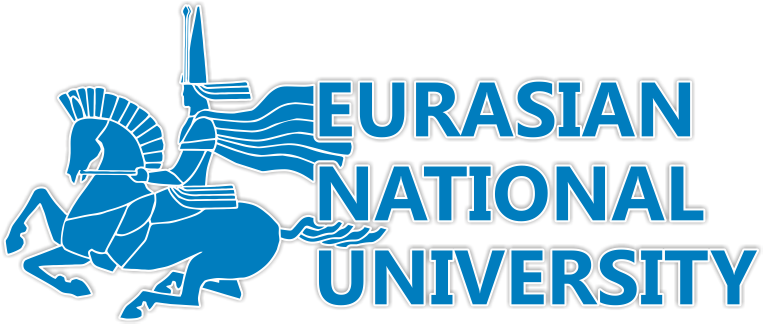Department of philosophy, dedicated to the 75th anniversary of the great victory In honor of the 75th anniversary of the great victory, the Department of philosophy held a seminar "Memory: philosophers and war" on may 6. The organizer and speaker was Dametken Tolgambayeva, Ph. D., associate Professor, VNS of the scientific project "Places of memory" in modern culture of Kazakhstan: processes of commemoration in public spaces".
The speaker outlined the field of research, drawing the audience's attention to the key words: memory, philosophers, war. D. Tolgambayeva noted that philosophers and war can be thought about in various aspects, war interests her as a fact of the biography of those people who are known as philosophers. Their youth and youth fell during the war, and it had a powerful influence on their professional and moral development.
War, the speaker noted – is an event in which a person finds himself in a borderline situation, in a situation where, perhaps, the essence of a person manifests itself, if not as a generic being, then the essence of a specific person.
In her report, D. Tolgambayeva addressed the fate and creativity of such philosophers as Rakhmatullin K. Kh., Ilyenkov E. V., Zinoviev A. A., P. Riker, M. Hadegger.
Kasym Khaliullinovich Rakhmatullin (19.09.1920-02.04.2007) - specialist in the philosophy of natural science and dialectics; doctor of philosophy, Professor, Honored scientist of the Kazakh SSR.

He was a platoon commander of an artillery regiment. Participated in the Kursk bulge, crossing the Dnieper, the liberation of Kiev, Lviv, in the battles on the Sandomierz bridgehead. Participant in the battles for the Oder, Berlin, and Dresden. Met victory in Prague.

Rakhmatullin K. X is known for his works "the Finest hour of humanity", "Philosophical and methodological problems of science", "in the world of Einstein", and others.
Among Soviet philosophers, the speaker introduced to the audience a philosopher associated with our country, who was friendly with Kazakh philosophers Agyn Khairullovich Kasymzhanov, Zhabaykhan mubarakovich Abdildin. This Is Evald Vasilievich Ilyenkov (18.02.1924-21.03.1979). He is known for his works on the problem of the ideal, the essence of creative activity, etc.


He fought on the Western front as part of the 1st and 2nd Belorussian fronts as an artillery platoon commander. Victory day was celebrated in Berlin. Until August 1945, he served in Germany. Awarded the order of the Patriotic war II degree and medals.
In 1997, the Institute of philosophy of the Russian Academy of Sciences published the book " drama of Soviet philosophy. Evald Vasilievich Ilyenkov (book-dialogue)". At the L. N. Gumilyov ENU, on the initiative of academician, Professor of the Department of philosophy Zh. m.Abdildin, with the support of the University's management, the "Ilenkov readings"were held in 2011.
Tolgambayeva D. also spoke about Alexander Zinoviev (29.09.1922-10.05.2006). Zinoviev-specialist in the field of logic and methodology of science, sociologist, publicist; writer; doctor of philosophy, Professor. Doctoral dissertation - "Philosophical problems of multi-valued logic".


He participated in the great Patriotic war as a combat pilot and finished it in 1945 in Berlin. He had 31 combat missions, was awarded the order of the red Star and other orders and medals. 1976 in the Swiss publishing house "Age d'homme" was published his novel "gaping heights". The result of this event was the deprivation of his Soviet citizenship in 1978, and he was expelled from the USSR. In 1978-1999, he lived and worked in Munich. In 1990, Zinoviev returned the citizenship of the USSR, academic degrees and titles. Since 2000, he has lived in Russia. He created the genre of "sociological novel".
Among the European philosophers of the name of Paul Ricoeur. Riker (27.02.1913-20.05.2005) - French philosopher, Professor at the Sorbonne, the University of Strasbourg and the University of Chicago, honorary doctor of more than 30 universities around the world. During the war, as an officer, he was captured, first in the gross-born camp, and then in Arnswald. In conclusion, he studied philosophy, gave philosophy lessons to his comrades, and founded a philosophical circle in Arnswald.


Ricker explores the problem of memory and history. Reflects on issues of memory, justice, guilt, forgiveness, responsibility. His famous book is "Memory, history, oblivion".
The seminar also discussed the outstanding German philosopher Martin Heidegger.

His biography is overshadowed by support for the Nazi party. However, as noted by many philosophers, in particular Karl Jaspers, Hannah Arendt, Nelly Motroshilova-this is an outstanding philosopher of the twentieth century, endowed with a talent in purely philosophical fields of knowledge and reflection.
Concluding the report, D.Tolganbaeva noted that above the philosopher, we remember all who have passed through war, and whose personal experience of war affected their philosophical work. Ultimately, they pondered the questions of being, the question "What is man?"


